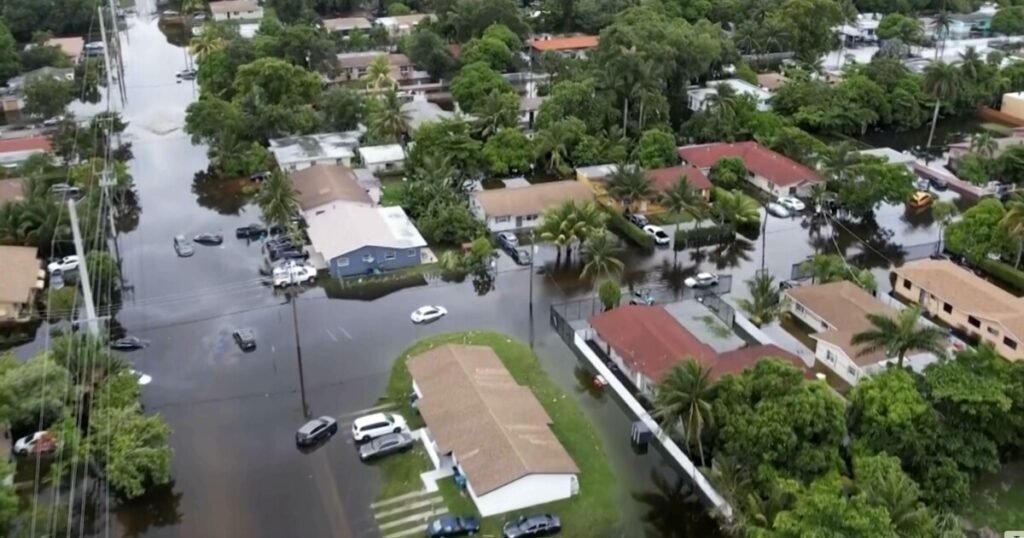Miami-Dade County to Factor Climate Change into Property Assessments
Tomás Regalado, the newly elected property appraiser of Miami-Dade County, aims to revamp property assessments by incorporating climate change data. His initiative reflects a growing concern about the implications of rising sea levels, increased flooding, and other climate-related challenges affecting home values.
Climate Change and Property Values
Regalado, who previously served as the mayor of Miami from 2009 to 2017, emphasizes the need for property assessments to align with current realities. "It’s time to recognize that climate change is real and influencing our lives," he stated. The underlying aim of this initiative is to adjust home values based on climate risk, potentially lowering property taxes for affected homeowners.
Understanding the Risks
The consequences of climate change are not just abstract; they have real financial impacts. Here are some potential effects:
- Increased Flooding: Areas prone to flooding, such as Shorecrest, face higher risks, making homes less desirable.
- Rising Insurance Costs: Homeowners may see insurance premiums rise due to the increased risks from climate change.
- Vulnerability of Property: Properties located in flood zones may experience significant decreases in value compared to those in safer areas.
Regalado acknowledges that while this may raise concerns about local tax revenues, he believes the region will continue to attract residents, including those escaping political turmoil, such as individuals from Venezuela.
The Appraisal Process
Key Factors in Property Appraisals
Florida law outlines eight factors used to determine property value, including:
- Property Condition: The current state of the home and its maintenance.
- Highest and Best Use: What the property could be utilized for based on zoning laws.
- Location: The geographical risks, including proximity to flood zones.
As climate change becomes a more significant consideration, Regalado emphasizes that properties in flood zones should not be valued the same as those that are safer.
Addressing the Housing Crisis
Miami-Dade’s housing market faces challenges, with the median price of single-family homes reaching $650,000, a 75% increase over five years. Regalado’s proposal targets housing affordability by potentially lowering property taxes for current, long-term homeowners—an important step to help those who want to remain in their homes.
Impact on Local Governments
While the initiative aims to assist homeowners, it could also lead to decreased tax revenues for local governments and schools. Regalado, however, maintains that this is a necessary adjustment reflecting current realities. "It is what it is because that’s the reality," he remarked.
When Will Changes Take Effect?
Regalado asserts that he has the unilateral authority to adjust property assessments without needing county commission approval. He anticipates that by the tax year of 2026, properties affected by climate change will be reassessed to reflect their true value.
Collaborating with Local Leaders
Miami-Dade County Mayor Daniella Levine Cava supports Regalado’s initiative, calling it "well attuned" to the challenges posed by climate change and the high cost of living. She emphasizes the importance of improving infrastructure to protect homes from extreme weather.
The Bigger Picture
In addition to lowering property values for tax assessments, Regalado’s plan seeks to instill an understanding of the long-term impacts of climate change on home values. "If you think this is a matter for 50 years from now, you’re wrong," he stated. This proactive approach signifies a shift toward acknowledging and addressing climate risks within the real estate market.
Conclusion
Tomás Regalado’s initiative to integrate climate change into property assessments signals a crucial step for Miami-Dade County. As the community grapples with rising sea levels and increased flooding, this approach aims to create a more sustainable real estate market while ensuring homeowners can afford to remain in their homes. This evolving dialogue around property values highlights the need to remain vigilant about climate resilience and affordability.
For more information on local real estate trends and the impact of climate change, visit Miami Realtors.


